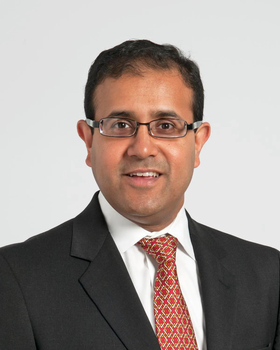Castleman Disease Overview
Learn About Castleman Disease
Common conditions include: Multicentric Castleman Disease (MCD), Unicentric Castleman Disease (UCD)
Dana-Farber Cancer Institute, Inc.
Nikhil Munshi is an Oncologist in Boston, Massachusetts. Dr. Munshi is rated as an Elite provider by MediFind in the treatment of Castleman Disease. His top areas of expertise are Multiple Myeloma, Smoldering Multiple Myeloma, Castleman Disease, Relapsed Refractory Multiple Myeloma (RRMM), and Bone Marrow Aspiration. Dr. Munshi is currently accepting new patients.
Razelle Kurzrock is a Hematologist Oncology specialist and a Hematologist in Milwaukee, Wisconsin. Dr. Kurzrock is rated as an Elite provider by MediFind in the treatment of Castleman Disease. Her top areas of expertise are Castleman Disease, Multicentric Castleman Disease (MCD), Lymphoid Hyperplasia, Adult Soft Tissue Sarcoma, and Tissue Biopsy. Dr. Kurzrock is currently accepting new patients.
Cleveland Clinic Main Campus
Sudipto Mukherjee is a Hematologist and an Oncologist in Cleveland, Ohio. Dr. Mukherjee is rated as an Elite provider by MediFind in the treatment of Castleman Disease. His top areas of expertise are Multicentric Castleman Disease (MCD), Castleman Disease, Myelodysplastic Syndrome (MDS), Acute Myeloid Leukemia (AML), and Bone Marrow Aspiration.
Summary: BACKGROUND: * A number of important scientific advances can be made through the study of blood, bone marrow, tumor, or other tissue samples from patients with HIV infection, infection with Kaposi s sarcoma associated herpesvirus (KSHV), infection with other oncogenic viruses, or cancer. * This protocol provides a mechanism to affect a variety of such studies. OBJECTIVES: -Acquisition of serum, cir...
Summary: The primary purpose of this protocol is to create a registry of patients with plasma cell disorders (PCDs), including for example the cancer multiple myeloma (MM), who complete the assessment, previously known as a geriatric assessment, as is outlined in this protocol. Secondary objectives include measuring the response rate to participation of patients in this study, assessing patient satisfactio...

The Castleman Disease Collaborative Network (CDCN) is a global initiative dedicated to accelerating research and treatment for Castleman disease and revolutionizing biomedical research.


